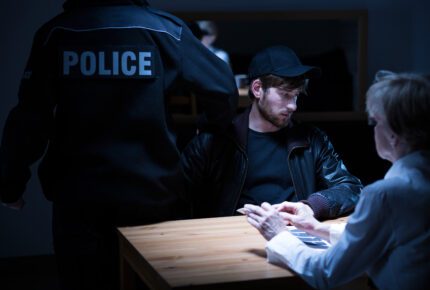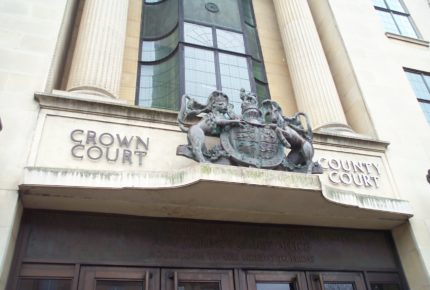

Are you facing a charge of possession of indecent images and wondering what the maximum sentence for this offence might be? If so, understand that this is one of the most common things people ask their solicitors, so you are not alone! The sentence for possession of indecent images can be severe, but there are things that a solicitor can do to help reduce the time you spend in prison (if indeed you are ultimately sent to prison following a guilty verdict). In this article, we outline the offence of possession of indecent images, then look at the maximum sentence you can get, the main takeaways from the sentencing guidelines, how a solicitor can help reduce the sentence you receive, and where to go for more help.
What is the offence of possession of indecent images?
The offence of possession of indecent images in England is a serious criminal act that involves the ownership or control of images that depict sexually inappropriate or explicit content involving minors. This offence is primarily governed by the Protection of Children Act 1978 and the Criminal Justice Act 1988. Additionally, the Sentencing Council provides guidelines specific to indecent image offences, helping courts determine appropriate sentences.
To secure a conviction for possession of indecent images, the prosecution must present compelling evidence that satisfies each element of the offence beyond a reasonable doubt.
- Firstly, it must be established that the defendant had possession of the images in question. This can encompass physical copies, such as printed photographs or DVDs, as well as digital files stored on electronic devices such as computers, smartphones, or external drives. The prosecution may rely on witness testimony, forensic analysis of electronic devices, or surveillance footage to demonstrate the defendant’s control or access to the images.
- Secondly, the prosecution must demonstrate that the defendant knew they were in possession of the images. This requires evidence showing the defendant’s awareness of the presence of the images within their control or custody. This could include admissions made by the defendant, witness testimony, or circumstantial evidence indicating their knowledge of the images’ existence.
- Thirdly, it must be proven that the defendant was aware that the images were, or were likely to be, indecent. This element hinges on establishing the defendant’s state of mind at the time of possession, specifically their awareness of the explicit or lewd nature of the content. The prosecution may introduce evidence such as the content of the images, their context or file names, or the circumstances surrounding their acquisition to demonstrate the defendant’s awareness of their indecency.
Examples of actions or situations that could constitute the offence of possession of indecent images include:
- Storing indecent images of children on a personal computer or laptop.
- Downloading indecent images of minors from the internet onto a mobile phone.
- Having indecent images of children saved on a cloud storage account.
- Possessing physical photographs depicting indecent acts involving minors.
- Receiving indecent images of children via email and saving them onto a hard drive.
- Sharing indecent images of minors through a social media platform and retaining copies.
- Possessing indecent images of children on an external hard drive or USB stick.
- Finding indecent images of minors on an old family computer and choosing to retain them.
- Having books or magazine publications that contain indecent images of children.
- Recording and keeping videos involving indecent acts with children.
Seek the advice of a qualified criminal defence solicitor if facing such charges to understand your rights, the legal process, and potential defences that could be available in your case.
What is the maximum sentence for possession of indecent images?
In England and Wales, the offence of possession of indecent images is clearly a serious matter and carries significant penalties. According to the Sentencing Council guidelines, the maximum sentence for this offence can be up to 5 years’ imprisonment. The severity of the sentence varies depending on the nature and category of the indecent images, with more severe penalties for images depicting higher levels of exploitation or abuse.
The Sentencing Council categorises indecent images into three levels:
- Category A: Images involving penetrative sexual activity, sexual activity with an animal, or sadism.
- Category B: Images involving non-penetrative sexual activity.
- Category C: Indecent images not falling within categories A or B.
The severity of the sentence would also be influenced by the offender’s role, the number of images, and any aggravating or mitigating factors in the case. It is vital for anyone facing such charges to seek expert legal advice to understand the potential consequences fully and to ensure their rights are protected throughout the legal process.
What factors influence the sentencing of possession of indecent images?
Determining the appropriate sentence for the offence of possession of indecent images is complex. A judge will consider a range of factors to ensure that the punishment fits the gravity of the offence and the circumstances of the individual. The Sentencing Council provides specific guidelines on this matter, which judges are required to follow. Here are the main considerations a judge will take into account:
Aggravating factors:
- Volume and Nature of Images: The number and category of the indecent images are critical. Larger volumes or images of a more severe nature (for example, involving extreme or sadistic content) will be viewed as more serious.
- Distribution: If the offender has shared or distributed the images, this significantly aggravates the offence.
- Previous Convictions: Any prior criminal record, particularly involving similar offences, will be considered as an aggravating factor.
- Use of Technology: Using sophisticated technology to evade detection or creating secure conditions for viewing these images can worsen the severity.
- Commercial Motive: If there was any financial gain involved, the sentence is likely to be harsher.
- Breach of Trust: Offences committed by individuals in positions of trust or authority, such as teachers or caregivers, will be judged more severely.
- Efforts to Conceal: Active efforts by the offender to hide their activities from law enforcement can also count as an aggravating factor.
Mitigating factors:
- Guilty Plea: Entering an early guilty plea can result in a reduced sentence, reflecting the offender’s remorse and saving the court’s time and resources.
- Lack of Previous Convictions: A clean criminal record can play in favour of the offender.
- Voluntary Rehabilitation: Engaging in counselling or treatment programmes before sentencing may be seen positively.
- Remorse: Genuine expressions of remorse, especially when combined with proactive steps to rectify behaviour,
How can a solicitor help with reducing the sentence for possession of indecent images?
Securing legal assistance when facing a criminal charge is crucial, especially for serious offences such as possession of indecent images. A solicitor can play a pivotal role in reducing the sentence, offering substantial support through their specialised knowledge and advocacy.
A solicitor with expertise in criminal defence can assist in reducing sentences by employing various strategies. They can scrutinise the details of the case to identify any procedural errors or weaknesses in the prosecution’s evidence. They may negotiate with the prosecution to attain a more favourable plea deal. Additionally, they can present mitigating factors effectively during sentencing, such as personal circumstances, cooperation with authorities, prior good character, and rehabilitation efforts, which may persuade the court to impose a more lenient sentence.
Facing charges without legal representation can be daunting and is fraught with risks. A solicitor helps ensure your rights are protected and provides a knowledgeable defence. They can clarify the complexities of the law, guide you through the legal process, and offer strategic advice tailored to your case. Their expertise increases the likelihood of obtaining a more favourable outcome, whether that be acquittal, dismissal of charges, or reduced sentencing.
Selecting the right solicitor is crucial for an effective defence. When choosing a solicitor, consider the following:
- Experience: Look for a solicitor with a strong background in criminal defence, particularly with cases involving possession of indecent images.
- Reputation: Seek out solicitors with good reviews and a strong professional reputation, as well as positive feedback from previous clients.
- Specialisation: Ensure they specialise in criminal law and have specific experience handling cases similar to yours.
- Communication: A good solicitor should be communicative, accessible, and able to explain legal jargon in understandable terms.
- Professional affiliations: Check if the solicitor is accredited by recognised legal bodies, which can be an indicator of their competence and professionalism.
Where to get more help
Dealing with concerns regarding the potential sentencing for the offence of possession of indecent images can be daunting, leaving you with important questions. At Stuart Miller Solicitors, we understand the gravity of your situation and the complexities involved. Our team is dedicated to providing you with the support and guidance you need during this challenging time. Contact us today to take the first step towards resolving your case with confidence.
OUR COMMITMENTS TO YOU:
-
Responsive
A legal expert will consult you within 24 hours of making an enquiry.
-
Empathetic
We will always treat you with trust, understanding and respect.
-
Specialised
Your case will be handled by an expert who specialises in your type of offence.
-
Proactive
We will take early action to end proceedings as soon as it is practically and legally possible to do so.
-
Engaged
You will be kept updated on your case at all times. We will provide a named contact available to answer your questions.
-
Caring
We understand this is a difficult and stressful time for you and your family. Our team will support you every step of the way.
-
Tenacious
We will never give up on your case. We fight tirelessly to get you the best possible outcome.

